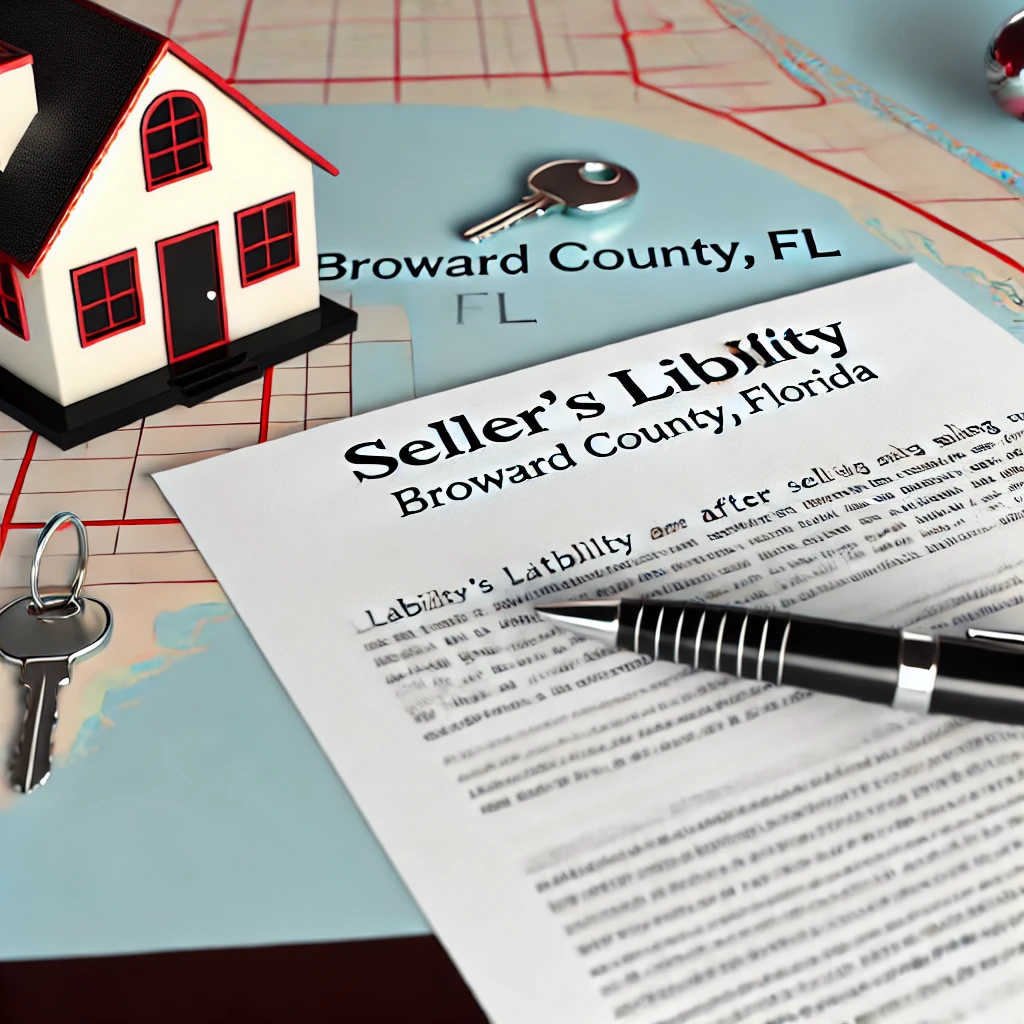Understanding Liability After Selling a House in Florida
When selling a house in Florida, many homeowners wonder, “How long are you liable after selling a house in Florida?” This is an important question, especially when dealing with real estate litigation in areas like Fort Lauderdale and Broward County. Let’s explore this in detail to provide you with a clear understanding of the liabilities, legal obligations, and relevant laws that come into play.
Sellers’ Legal Obligations in Florida
In Florida, sellers have an obligation to disclose any known material defects that can affect the value or desirability of the property. This duty is defined under the Johnson v. Davis rule, which necessitates sellers to disclose any issues like roof leaks, plumbing problems, mold, or termite infestations.
- Material Defects: Sellers must disclose defects or conditions that are not easily observable by a buyer and that significantly affect the property’s value.
- Disclosure Form: Most sellers use the Florida Association of Realtors (FAR) Seller’s Disclosure Form to document disclosures.
For more information about Florida’s disclosure requirements, you can check the Florida Department of Business and Professional Regulation website.
Liability Duration After Selling a House in Florida
So, how long are you liable after selling a house in Florida? Here is a breakdown of different scenarios that can affect the liability period:
Statute of Limitations
- Fraud or Misrepresentation: In Florida, the statute of limitations for fraud or misrepresentation in real estate transactions is generally four years. This means that if a buyer discovers that you intentionally hid a material defect, they have four years to bring a legal claim against you. You can find more information about statute limitations on the Florida Legislature site.
- Breach of Contract: If a buyer believes you breached the sales contract, they may have up to five years to file a legal action. Always keep copies of all communications and contracts to provide evidence if necessary.
Caveat Emptor (Buyer Beware)
Florida operates under a principle known as “Caveat Emptor” for real estate transactions. This means the buyer is responsible for discovering any issues they may have with the property through inspections. However, if the seller deliberately conceals defects, they can still be held liable.
Warranty Claims
Most home sales include some form of home warranty. If you provided a home warranty, you might be liable for repair costs within the warranty period, typically one year.
Real Estate Litigation in Fort Lauderdale and Broward County
In Fort Lauderdale and Broward County, real estate litigation related to post-sale liability is common. Buyers sometimes discover issues after moving in and may seek legal remedies. Engaging with a local real estate litigation lawyer like Joseph Hughes can ensure you are well-represented.
Common Real Estate Litigation Issues
Below are some common issues that might lead to litigation after the sale of a house in Fort Lauderdale:
- Undisclosed Defects: Buyers may claim that the seller failed to disclose known defects.
- Property Boundary Disputes: Disputes over property lines can lead to legal action.
- Title Issues: Problems with the property’s title discovered post-sale.
FAQs: How Long Are You Liable After Selling a House in Florida?
| Question | Answer |
|---|---|
| What must I disclose when selling my house in Florida? | You must disclose all known material defects that could affect the property’s value. |
| How long can a buyer bring a lawsuit for undisclosed defects? | Generally, up to four years for fraud or misrepresentation and up to five years for breach of contract. |
| What is Caveat Emptor? | Caveat Emptor means “Buyer Beware,” but sellers are still liable for hiding known defects intentionally. |
| Do I need a lawyer for real estate transactions? | While not required, consulting with a lawyer like Joseph Hughes can provide valuable protection and guidance. |
Local Resources for Fort Lauderdale and Broward County
Explore the following local Fort Lauderdale and Broward County resources for more information and assistance:
| Resource | Link |
|---|---|
| Broward County Property Appraiser | bcpa.net |
| Fort Lauderdale City Zoning | fortlauderdale.gov |
| Florida Department of Business and Professional Regulation | myfloridalicense.com |
| Broward County Clerk of Courts | browardclerk.org |
Contact Fort Lauderdale Litigation Lawyer Joseph Hughes
If you’re facing real estate litigation issues in Fort Lauderdale or need advice on liability after selling a house in Florida, consider contacting Joseph Hughes. With his extensive experience in real estate law, Joseph Hughes provides tailored guidance and representation to help you navigate the complexities of these issues. Reach out at Hughes Real Estate Law, call (954) 256-5125 for a consultation. Protecting your interests is our top priority.




